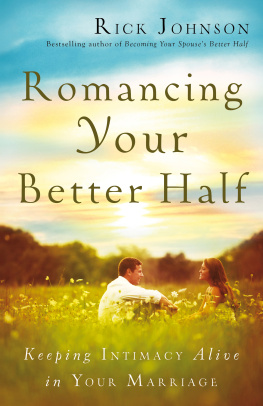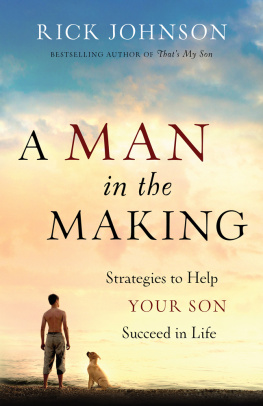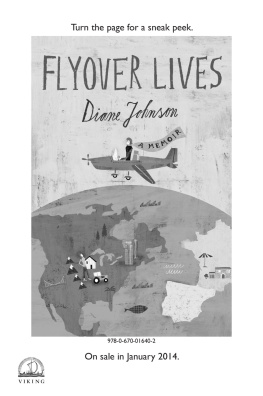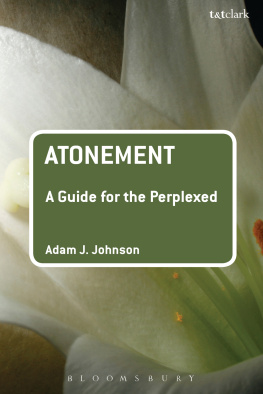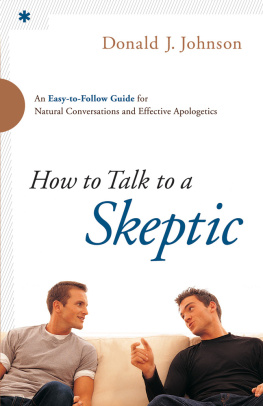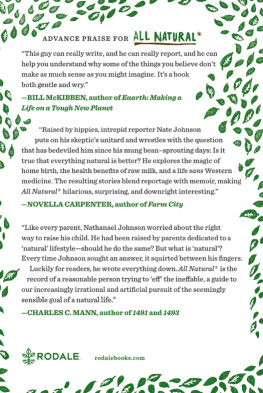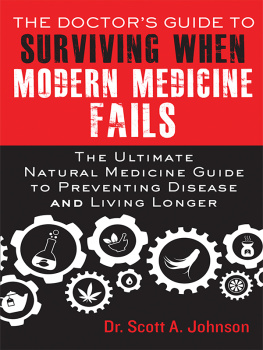
To Mom and Dad. We turned out all right despite/because of all this.
C ONTENTS
I NTRODUCTION
My inspiration for this book began when I was 7, as I sat huddled with my little brother on the covered porch of our house in the pines outside Nevada City, California, our backs against the door, watching the rain fall. It was cold that day, the kind of coldjust on the verge of freezingthat somehow cuts more deeply than it would if the temperature dropped another five degrees and wet turned to snow.
That was 1986, and we were out there because my parents had just bought a computer, an IBM 286. The screen was two-toned black and amber, and the machine produced a grinding noise when it was processing information, as if it were gnawing on the floppy disks we fed it. Nonetheless, my brother, Tim, and I were fascinated to the point of obsession. It was like a starship had materialized in our housethe magnetism of futuristic coolness was just as irresistible, which was precisely what my parents were worried about.
For most of our young lives, theyd managed to shield us from technology. They were determined to raise us in an Edenic natural setting, so we moved to a town in the hills of Northern California surrounded by communes and spiritual retreats, where many people lived off the electrical grid and foraged for food in the forest. As babies, wed crawled around naked because Dad had determined that all diapers, even the organic cotton kind, were an abhorrent corruption of natures plan. We were fed a diet of organic brown rice and garden vegetables. We visited naturopaths and chiropractors. There were no televisions in our house, and we were not supposed to watch TV when we visited friends because, as my mother explained with an unsatisfying lack of specificity, it would rot our brains. But my parents, for all their idealism, also had a pragmatic streak. They knew that they couldnt hold back the rising tide of technology forever. When the computer first entered the house it was strictly off-limits. But then, under heavy lobbying, and with the understanding that a computer-dominated culture was inevitable, they agreed to a compromise: For every three hours we spent outside we were allowed to play Space Quest for half an hour. Which is why my brother, and I were outside in the wet, wrapped together in an old blanket.
I dont remember all of what was going through my head that day, besides thinking, Im cold, and frequently fighting the urge to check the time. I know I wondered whether the frigid outdoors was really healthier than a warm seat in front of a computer. I fantasized about that image for a few moments. Then I asked my brother how far wed gotten. Tim fished the clock out of his pocket. Almost eight minutes, he said.
Perhaps my parents precautions outweighed the risk, but to them the 286 was inseparable from the open pit mines, fiery smelters, and factory lines that had called it into being. It represented the piecemeal conversion of the worldfrom a colorful place that fostered life into a gray place that fostered mechanical efficiency. And my parents worried that the computer could cause a similar conversion in our brains. By the same rationale, all technologiesthat is, all attempts to control, improve, or otherwise meddle with naturewere suspect. Factory farming, food processing, pharmaceuticals, and hospital births were, in their eyes, all products of the same industrial force and, therefore, were liable to do more harm than good in the long run.
According to family ideology, good health resulted from forming connections with the surrounding world rather than controlling it, from finding harmony with nature. But when I encountered nature as a kid, instead of granting me health, it generally wanted to eat me: It wanted to lay eggs in my cereal, to fly clumsily into my ear, to skitter across my pillow and disappear into the blankets. Its easy to point to aspects of nature that are annoying or dangerous, but thats not enoughit turns outto win you unlimited Space Quest privileges. My parents had no trouble acknowledging that some parts of nature were bad and some kinds of technology were good, while maintaining their preference for the former and suspicion of the latter. And even I had to admit that there was something weird about the desperation that came over me when my time at the computer was up. Even I had to admit that there was something about the natural world that made me feel good.

My family went backpacking in Yosemite every summera kind of pilgrimage, to be completed regardless of difficulty. The year I was born, I rode atop Dads backpack, and two summers after that my little brother joined me in this palanquin. From then on, Tim and I paid back this service, taking a larger burden each trip. Strangers on the trail used to gape at usthis pair of heavy-laden toddlers, bandannas around our necks, red felt hats on our heads, trudging resolutely into the backcountry. I loved those trips. For some reason the mosquito bites and sunburns, the exertion and the grime, all seemed insignificant. Each day I felt my pack grow a little lighter, my stride a little surer. Each evening my brother and I teetered out into the shocking coldness of a new lake to dog-paddle in little gasping ellipses. Each night the family sat together, sipping tea, and watched the alpenglow fade from a new set of peaks.
The same year that Tim and I had sat in the sleet to earn our computer time, we hiked over Koip Peak Pass. Wed camped just before the trail grew steep, where a glacier dripped into a shallow pool. As the sun rose I made out a jagged line rising improbably up an escarpment of rusty scree. Id never seen a trail that simply hurled itself up a cliff face in that way, but when we began the ascent I found we were following the same line Id traced from below. At the end of one switchback, which seemed to traverse out over nothing, I paused. To one side I could lean into the mountain, my hand splayed across the talus tiles; to the other was sky and wisps of cloud. Below, there was a rock outcropping, then air for 5,000 feet, and then the flat pan of Nevada desert stretching out until it met the sky again. I thrilled, just for a second, at something like the sensation of flight, then felt the greasy skid of vertigo and pulled my head away. My family was on the trail below: Dad following Tim closely, and Momwith her two-ton fear of heightsbehind, placing each foot with the fanatical concentration of a firewalker.
When we reached the top of the pass, a lake shimmered on the other side a few thousand feet below, and beyond: peak after peak to the limit of sight. We huddled in the lee of a rock pile, chewing dried pineapple and laughing over nothing but the wild sense that we had just done the impossible. I felt toughsuntanned, windburned, and strong. It was pretty much the opposite of the way I felt when my half hour on the computer was ticking down (furtive, compulsive, weak). Up there it seemed self-evident that a healthy environmentuntainted by technologymade healthy people.

Back down at sea level, twenty-plus years later, its not self-evident at all. In this age of global warming, killer germs, and obesity, its easy to feel as if weve somehow slipped out of synch with the global ecosystem. But its just as easy to dismiss that feeling by pointing out all the good that our industry has brought. Weve got more stuff. We live longer. Everything gets better and easier.
I suspect most of us are actually stuck somewhere in the middle: We recognize the good that technology has conferred, but also have a gnawing sense that something is missing or awry. This sense is persistent, but frustratingly vague. Call it ecological anxiety. You know youve got it if you are occasionally concerned that hormone-mimicking chemicals are leeching from takeout containers into your food, but have found that plastic is too useful and too ubiquitous to avoid; if youre left cold by encounters with the medical system, but arent really sure you believe in that alternative practitioner your friend recommended; if you sporadically pay more for food marked GMO free or All Natural, but only if its not too much more; if you use eco-friendly laundry detergents, but still dry your clothes with an energy-guzzling machine rather than a line, and travel on airplanes and basically just
Next page

